

Agriculture & Food Security
Madagascar’s first embryo transfer in cows set to boost dairy production and climate resilience
In a groundbreaking initiative, Malagasy farmers had their cows artificially inseminated with the semen of a highly-productive Swiss cattle breed – or implanted with its embryo.
The project, implemented by the Aga Khan Foundation (AKF) through its local branch Organisation de Soutien pour le Développement Rural à Madagascar (OSDRM) in partnership with the Government of Madagascar, has carried out the first embryo transfers in cows in the country.
The MILCA project (Madagascar Innovations Leverage for Climate Adaptation), aims to increase cattle milk production in the country. This has multiple, interconnected benefits including boosting the incomes of dairy farmers and improving their family’s nutrition, ultimately supporting them in coping with climate change effects, which have had devastating impacts on food security and livelihoods.
Both breeds selected are adapted to tropical environments, which includes higher melanin to better withstand strong insolation, or solar radiation. While local breeds in Madagascar only produce an average of three litres of milk daily, Swiss Brune cattle typically generate nine times more.
15% of people in Madagascar earn a living through livestock production.
According to AKF’s Dr. Vonona Ambinina, a veterinarian and the project’s manager, Malagasy dairy farmers barely have enough milk for their own families, let alone excess milk to sell. As part of this project, Dr. Ambinina traveled to Switzerland to receive training on embryo transfer from Swissgenetics, a farming cooperative providing artificial insemination services and supplies. In doing so, Dr. Ambinina became the first veterinarian in Madagascar trained in embryo transfer.
AKF’s partner Swissgenetics – the leading cooperative in Artificial Insemination in Switzerland – exported sexed semen to Madagascar. The objective is to guarantee female offsprings to increases genetic progress in dairy herds and saving resources and time to the farmer with unwanted male calves.
According to Dr. Ambinina, many of the farmers “could not believe this kind of thing could happen in Madagascar.”
But it did. After the cows were artificially inseminated, nine calves were born.
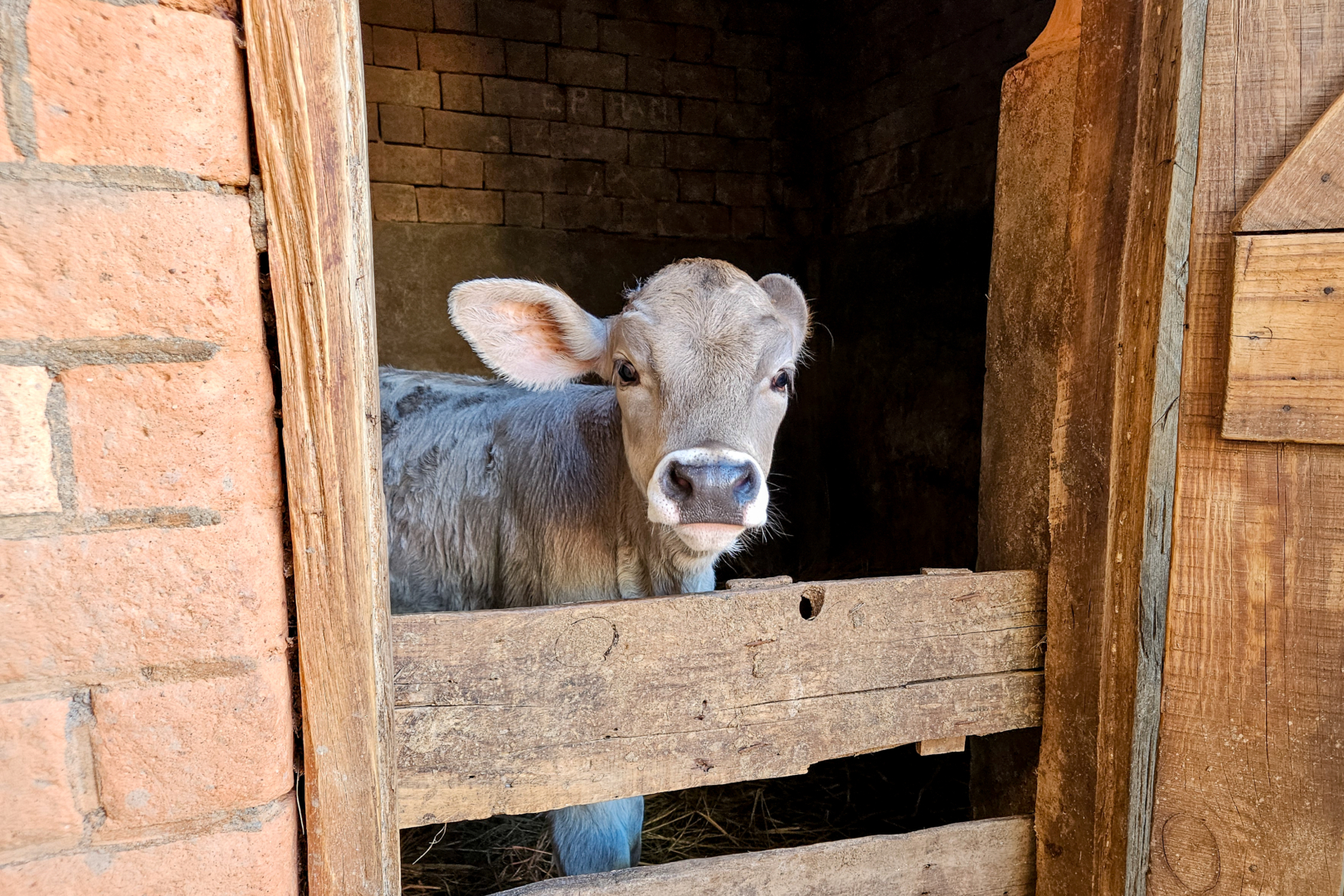
While cows are often viewed as polluters, the farming system — rather than animals — is to blame. If cows exclusively eat grass and hay rather than imported concentrate feed, their impact on the environment and climate has proven to be beneficial.
In addition, owning a cow that produces four times more milk than the local breeds allows farmers to drastically reduce their costs, inputs and labour, while increasing their climate resilience.
With the embryo transfer, many [farmers] could not believe this kind of thing could happen in Madagascar.Dr. Vonona Ambinina – veterinairan and MILCA project manager, AKF Madagascar
‘We have no choice’
Marie Raherimalala, who lives in Anambiaty, a village in the country’s highlands, said making a living as a dairy farmer is impossibly difficult.
While the capital city of Antananarivo is only 25 kilometres from her village, poor road infrastructure makes it a three-hour arduous journey, preventing Marie from selling milk directly to customers.
Instead, farmers must rely on middlemen, who purchase milk at low prices while selling it at high margins in the capital.
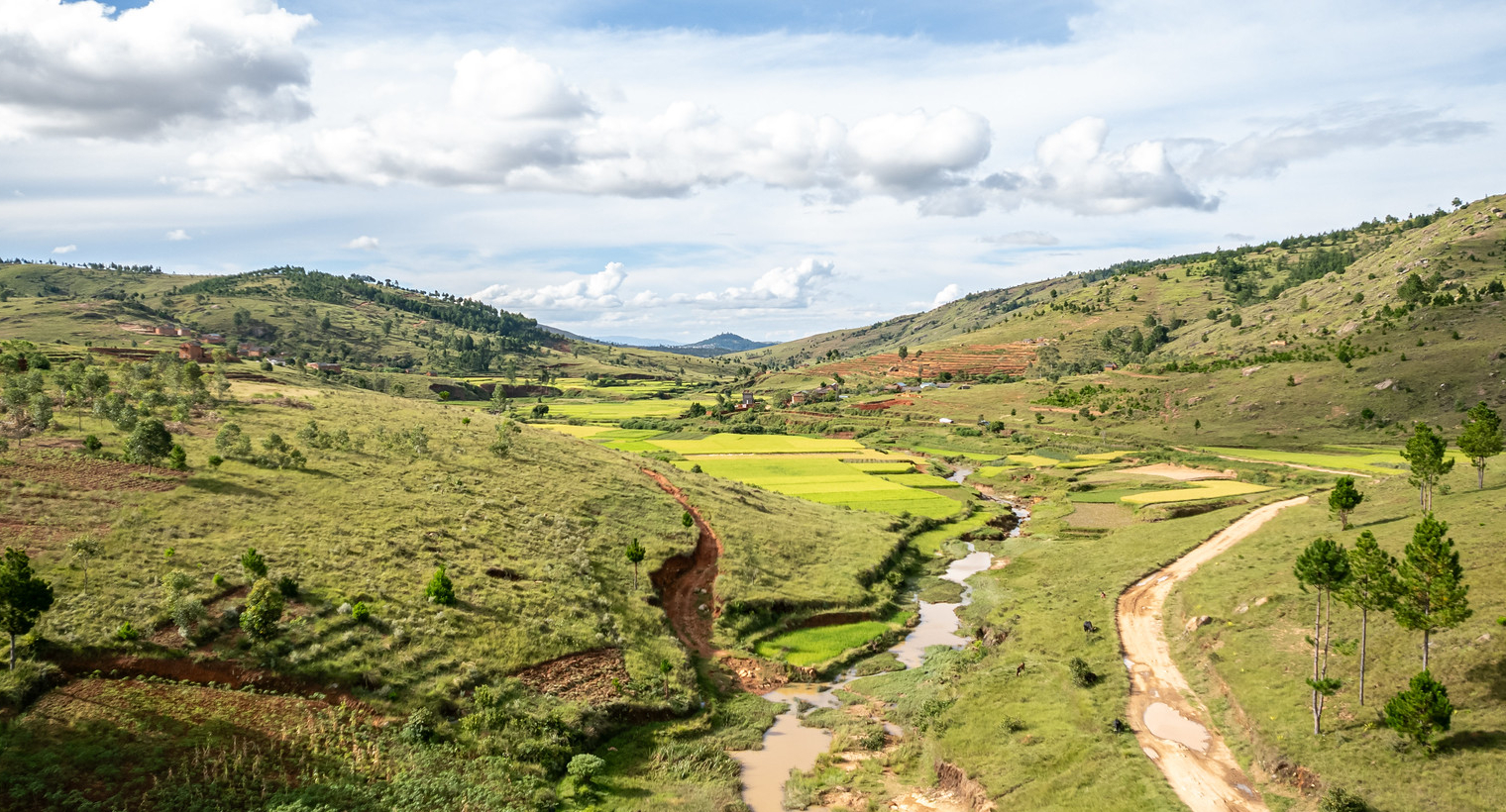
80 percent of Madagascar’s population live in rural areas | AKF / Humberto Caldas
“The middleman decides the price [of milk] and we have to accept it,” Marie says. “We cannot bargain with them when they say they will buy it at a certain price.”
Middlemen pay Marie 2600 ariary, or USD $0.60 per litre of milk, which isn’t enough to cover her costs, such as fodder. Like many other livestock farmers, Marie cannot profit from selling milk under these conditions.
“We have no choice and we have no fridge. In a hot season like this, the milk gets spoiled,” she says.
The middleman decides the price [of milk] and we have to accept it. We cannot bargain… we have no choice.Marie Raherimalala – dairy farmer
With the successful insemination of one of her cows, Marie hopes to increase her milk production and begin to earn a living from selling milk, particularly as the MILCA project has established milk pick-up points in villages, connecting dairy farmers like Marie with purchasers who can buy milk at fair rates.
Getting the details just right
To import the genetic bovine materials, AKF worked with Malagasy’s Ministry of Agriculture and Livestock whose national strategy aims to strengthen dairy supply chains and increase national milk production.
The semen and embryos, which arrived on several flights from Switzerland at -196 degrees Celsius, were kept frozen with liquid nitrogen.
“We needed to maintain that temperature, otherwise the semen samples would not survive,” Ambinina explains. “It was a challenge because we don’t have a large supply of liquid nitrogen here – it’s either unavailable or expensive.”
AKF had to secure enough liquid nitrogen to keep the materials frozen until they reached their final destination, some of which were transported to the country’s north, over 1,000 kilometres away, involving a local flight and a seven-hour car ride.
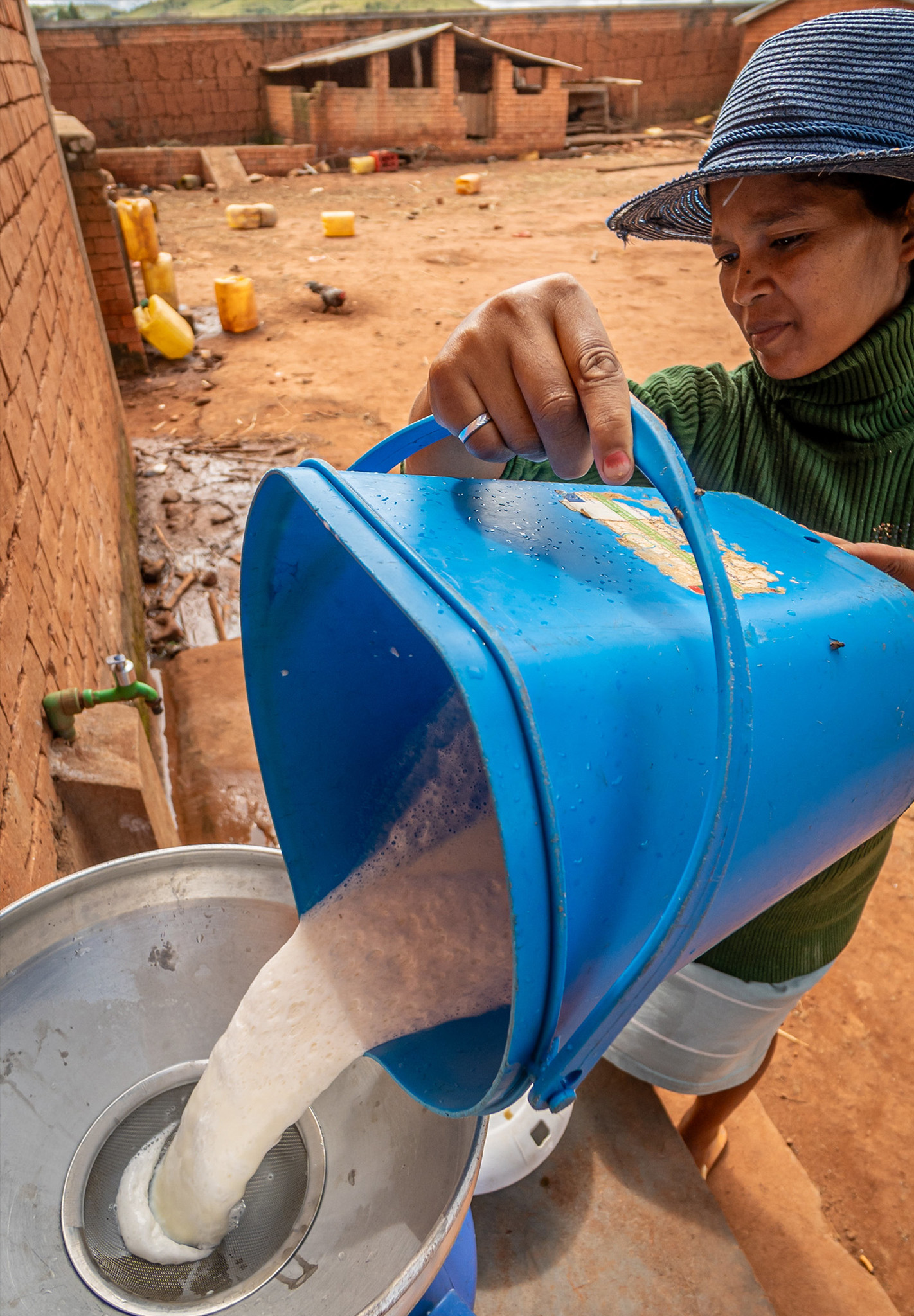
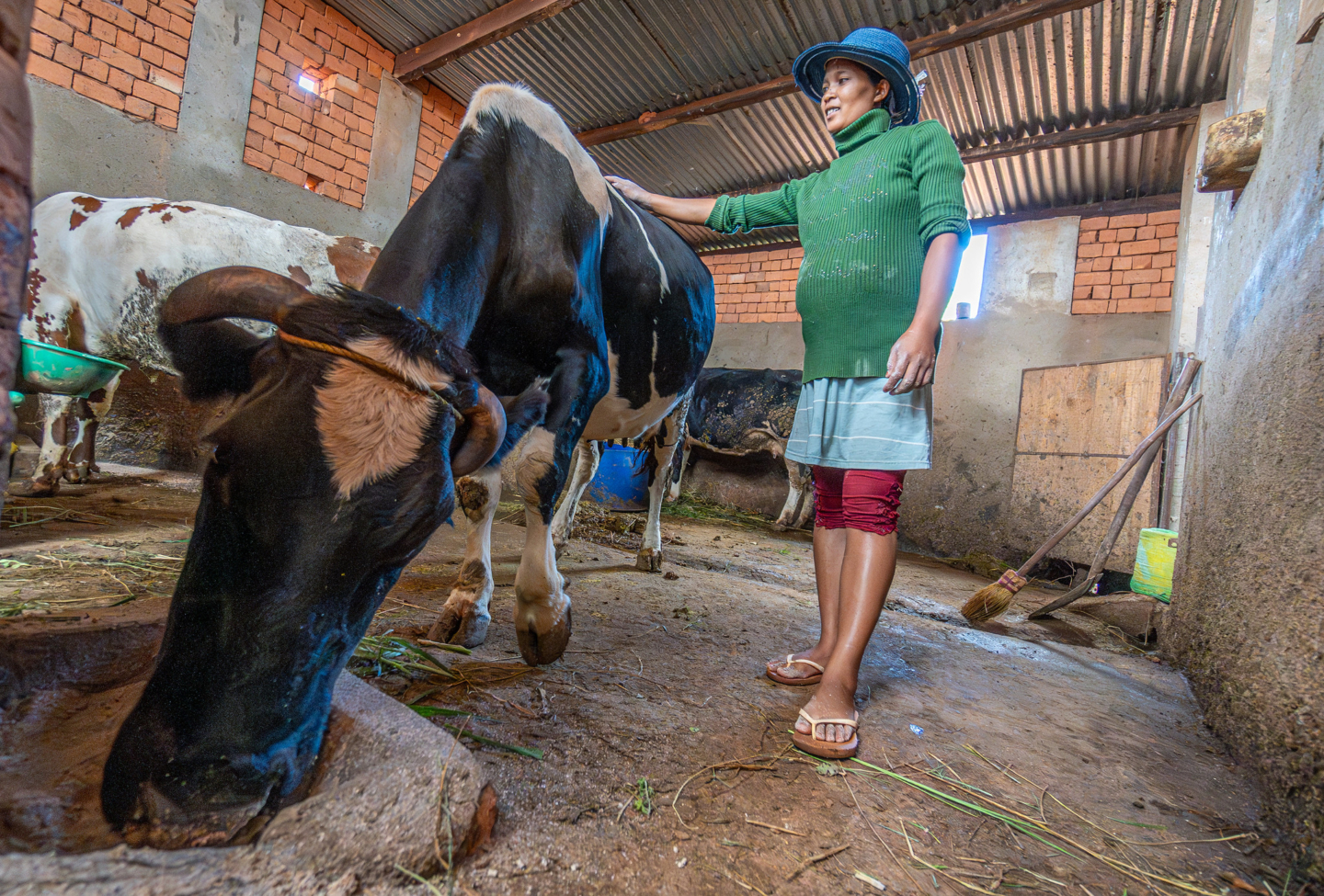
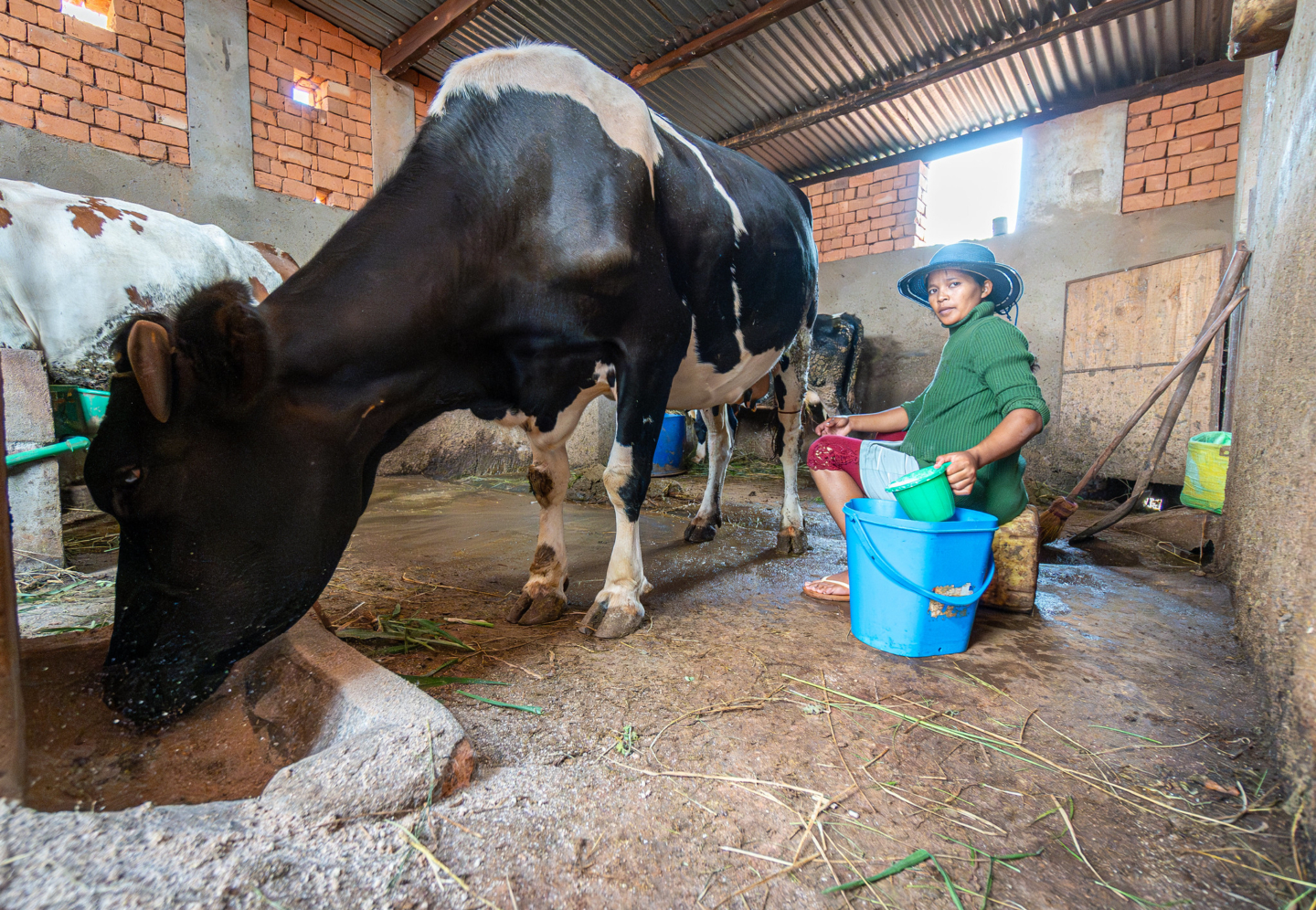
Ripple effects
AKF also trained livestock farmers in applying agroecology practices to improve their fodder quality and yields, which leads to healthier animals and increased milk production. In Madagascar, as well as other countries where the Foundation operates, it deploys regenerative farming practices to increase the production and income of farmers, while reducing their costs and labour, and strengthening climate and socio-economic resilience, so farmers and their families can thrive despite shocks which may otherwise be debilitating.
While increasing the milk production of cows – and thereby, the income of livestock farmers – is the primary objective of the MILCA project, the project aims to create ripple effects for farmers and their families.
As farmers have access to increased milk, their families can consume this milk to enhance their nutrition, which is critical for children under five years of age – almost half of whom experience chronic malnutrition – and pregnant women.
Local cows in Madagascar produce a maximum of three litres of milk per day, compared to a Swiss breed which can produce up to 27 litres daily in local conditions.
Low milk consumption in Madagascar contributes to acute child stunting. While Malagasy people consume approximately five litres of milk per person per year, their counterparts in Switzerland consume 10 times more, and those in Kenya consume 20 times more.
“In that respect, [improving] the nutrition of children and pregnant women has a lasting impact for 20 to 25 years to come. Those children, having better nourishment, will learn faster and be more resilient to health hazards, along with their mothers,” said Grégoire Imberty, CEO of AKF in Madagascar.
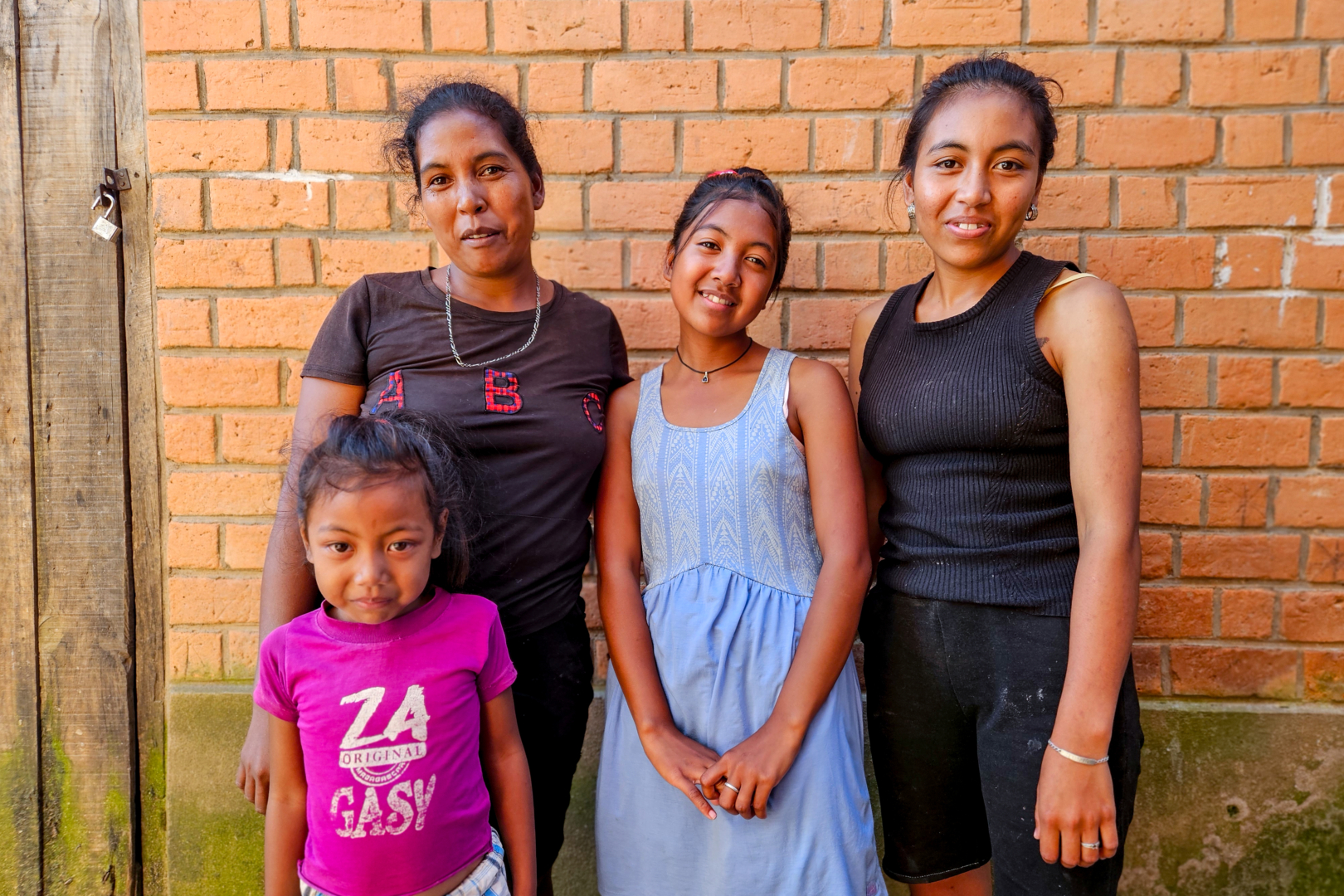
One of the top 10 countries most vulnerable to climate disasters, Madagascar experiences frequent cyclones, floods, and droughts, which have devastating and widespread impacts. The country has faced back-to-back droughts instead of the typical rainy season since 2019, making food security a growing challenge, particularly as 80 percent of people in the country live in poverty and one in every three people experience food insecurity.
Scaling the innovation
With the completion of the first phase, which focused on cattle insemination and dairy farmer training, AKF donated excess semen samples to the country’s bureau of veterinarians who will use them for research.
The organisation is seeking funding for a second phase, which would include assessing the adaptation of these cows to the local context and the willingness of farmers to adopt these practices more broadly across the country.
The project aims to scale to reach more farmers, as 15 percent of people in Madagascar rely on income from their livestock. In addition, AKF aims to develop partnerships with wholesalers to purchase the milk which would provide consistent income for dairy farmers, and enable farmers like Marie to be paid fairly for milk.
The Aga Khan Foundation implements programmes in Madagascar through its local branch, Organisation de Soutien pour le Développement Rural à Madagascar (OSDRM).
Written by Jacky Habib, a Nairobi-based freelance journalist reporting about social justice, gender, and humanitarian issues. Her work has been published by NPR, Al Jazeera, VICE, Toronto Star, and others. Read more at: www.jackyhabib.com
Related News & Stories

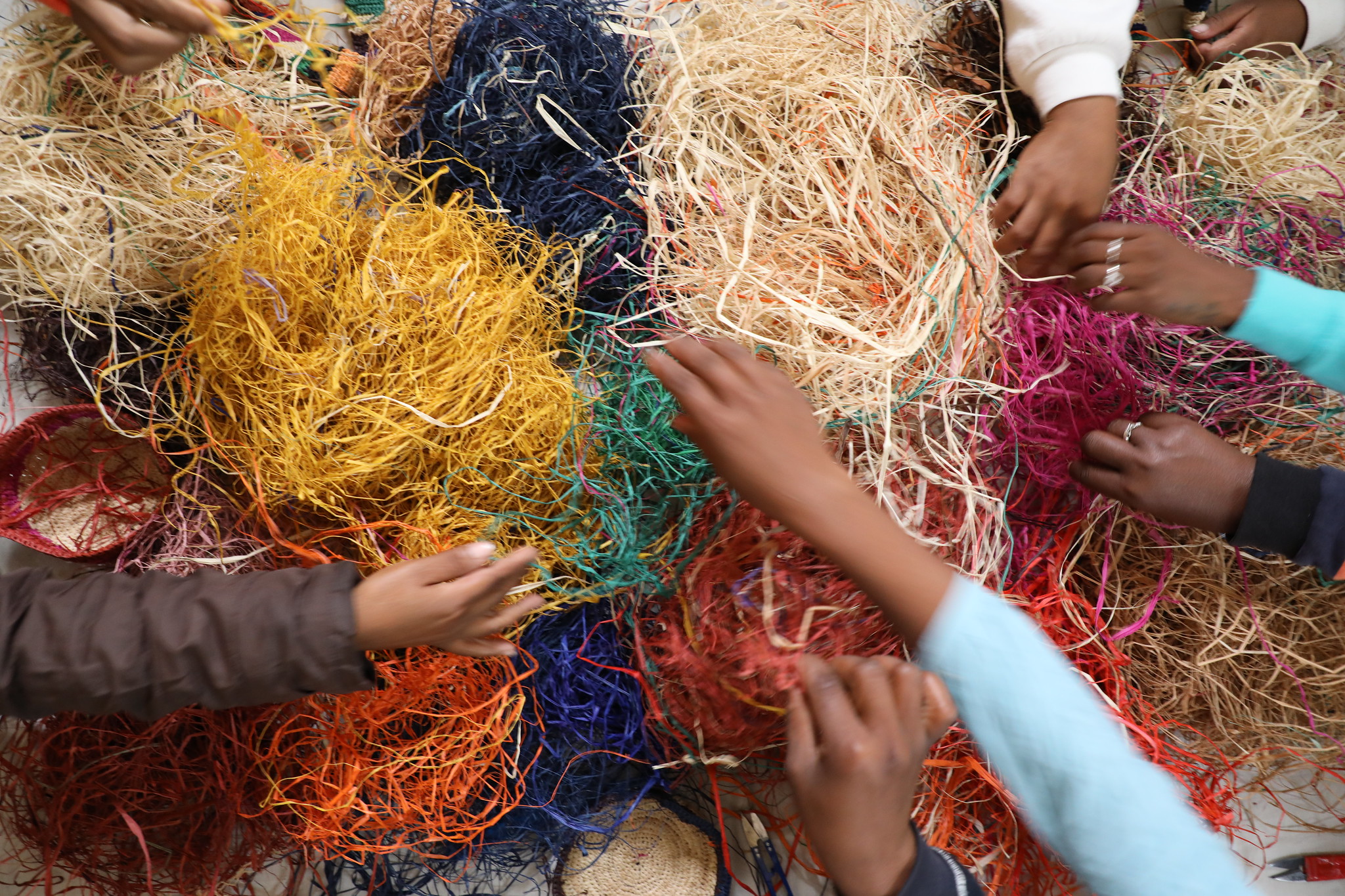
Not just a pastime, but a lifeline
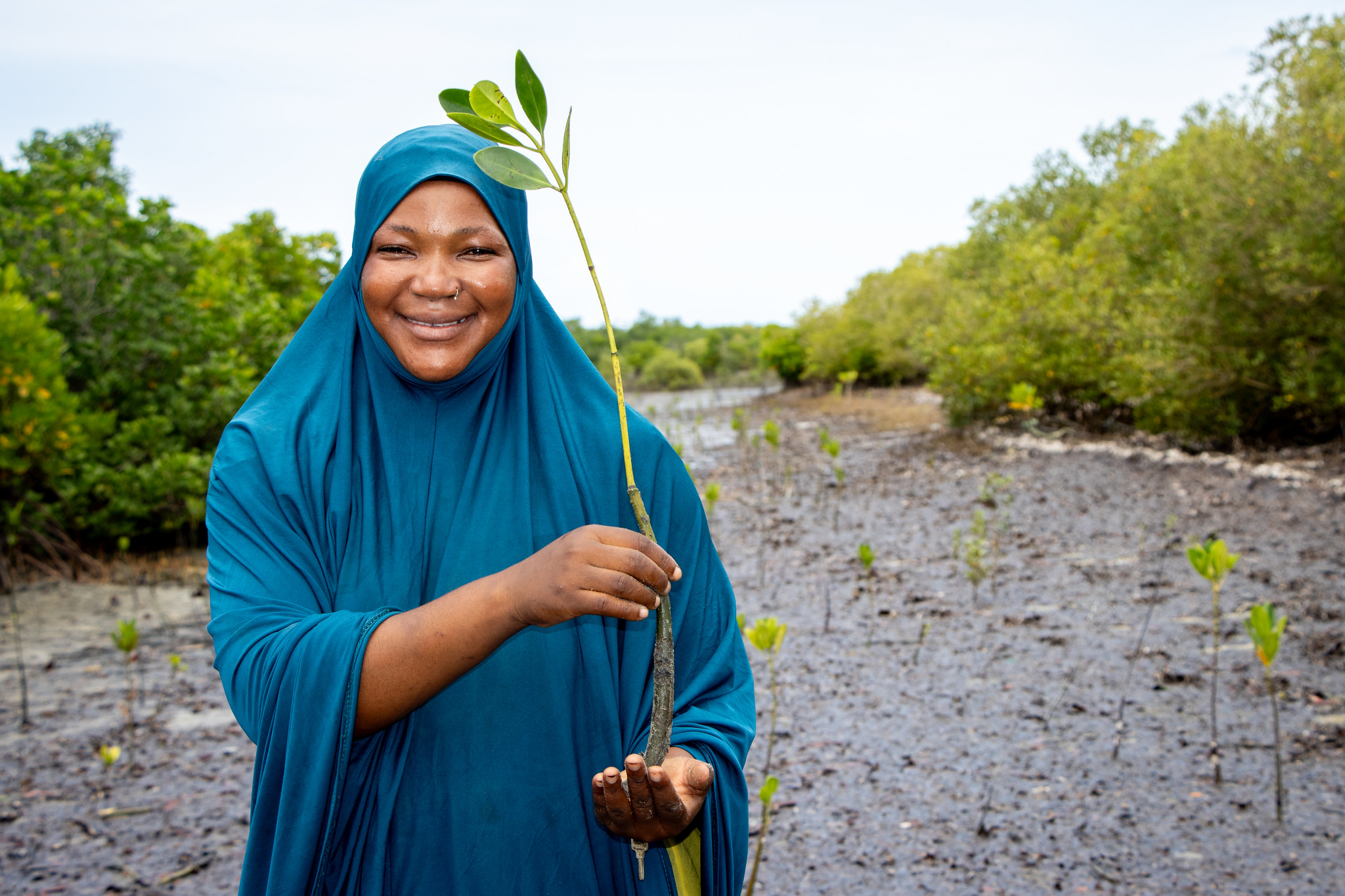
What are Nature-based Solutions?

How savings groups and cooking classes are combating malnutrition and building climate resilience in Madagascar
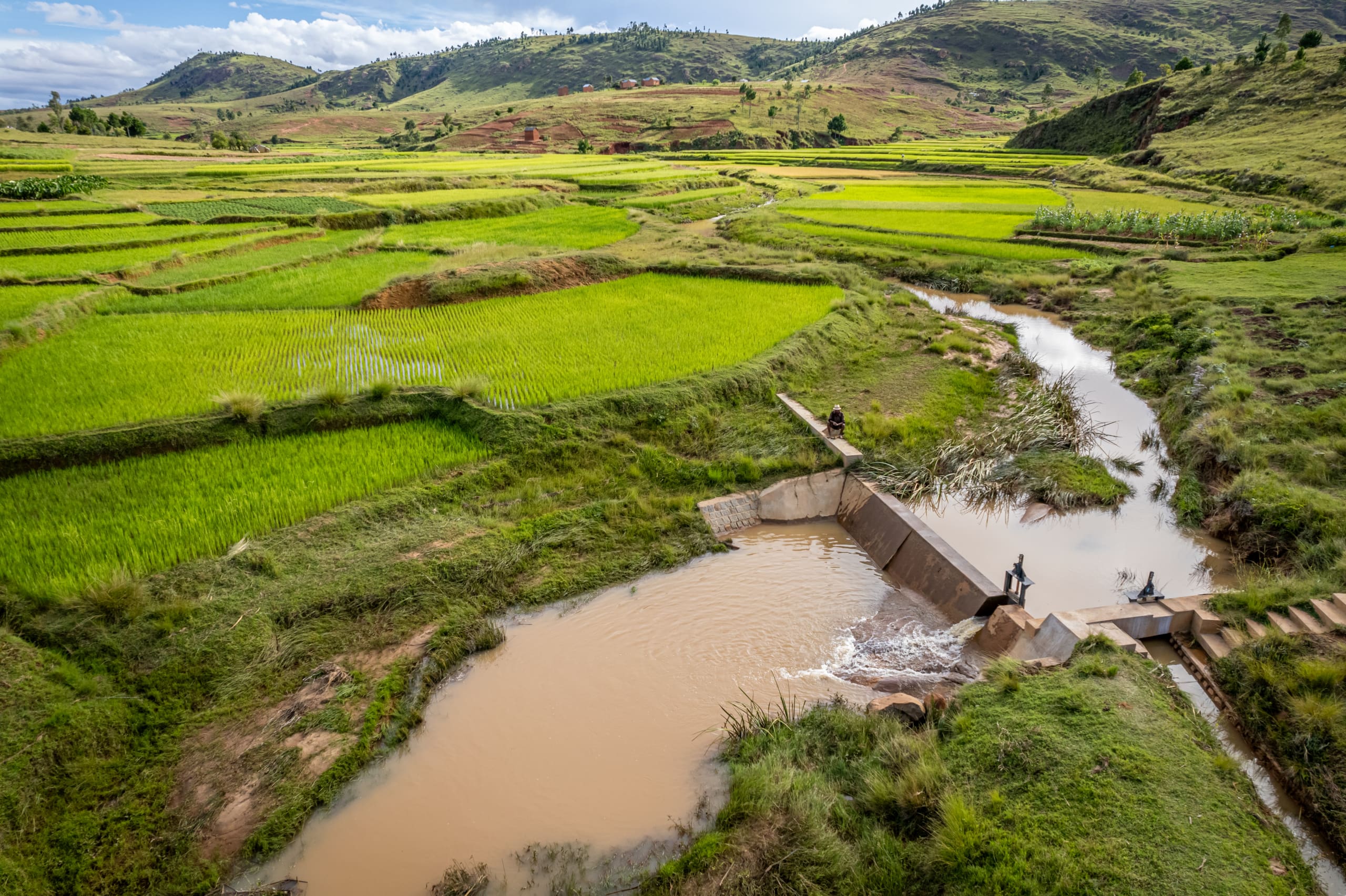
“The money we used for chemicals, we now use for food”: How regenerative farming is improving food security and building climate resilience in Madagascar

The work of the Aga Khan Foundation in Madagascar
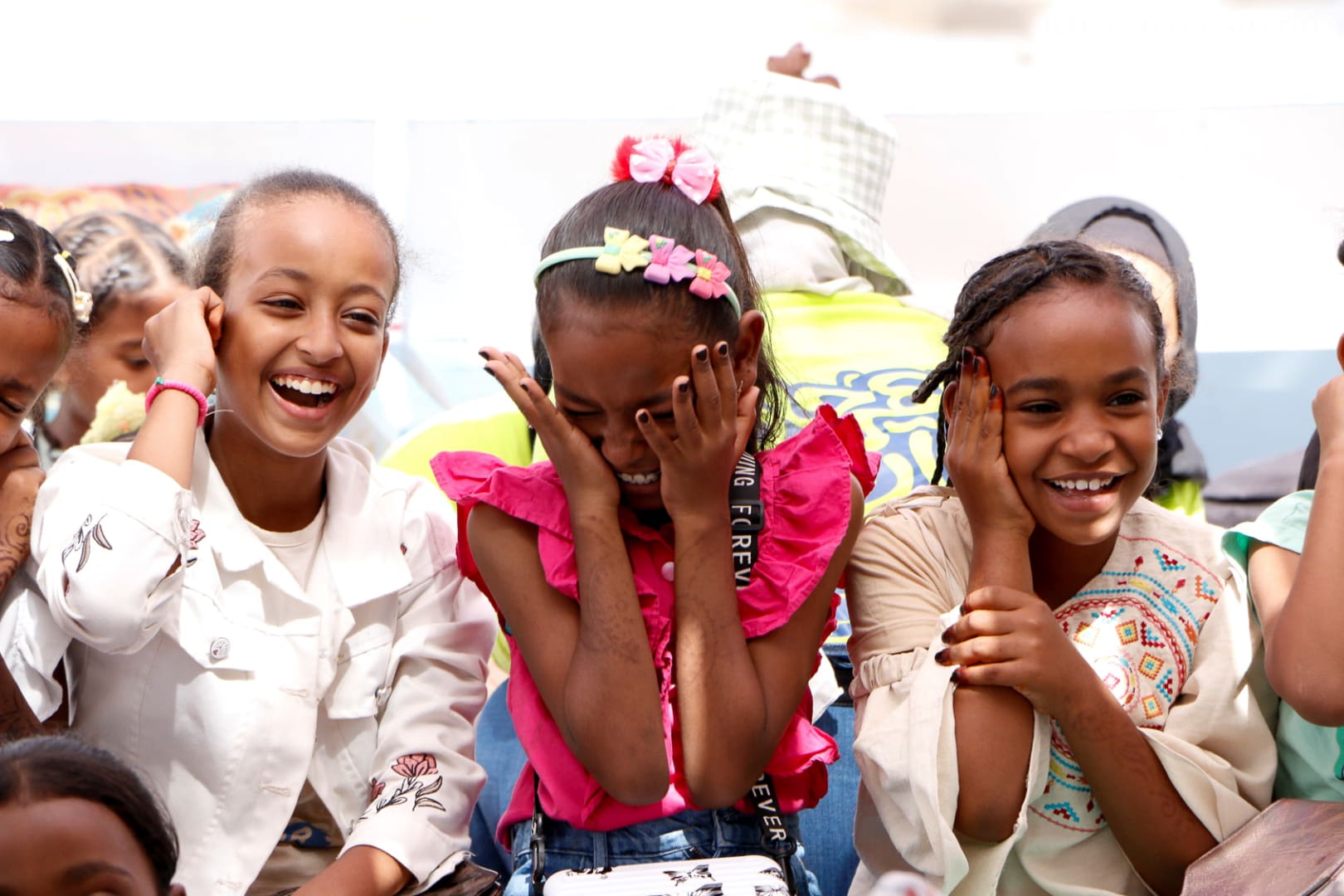
Support our work Your donations are helping us build a future where we all thrive together.